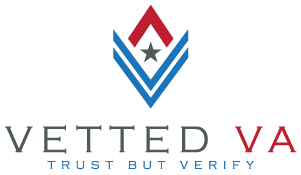
Understanding the VA Certificate of Eligibility (COE)
The Certificate of Eligibility (COE) is one of the first and most important documents in the VA home loan process. It proves to your lender that you meet the Department of Veterans Affairs (VA) service and character requirements to use your VA loan benefit.
While you typically don’t need the COE to get pre-qualified, you’ll need it for your official loan application. Having it early helps your lender verify your eligibility and move your loan forward faster.
(Source: VA Lender’s Handbook, VA Pamphlet 26-7, Chapter 2, Section 1)
Step 1 — Confirm You Meet VA Home Loan Eligibility Requirements
Before applying for your COE, confirm that your service meets minimum eligibility requirements. The VA defines these based on your duty status and service period.
Veterans:
-
Must have served a minimum active-duty period (generally 90 days during wartime or 181 days during peacetime).
-
Must have been discharged under conditions other than dishonorable.
Active-Duty Service Members:
-
Must have served at least 90 continuous days of active service.
-
Need a signed statement of service from your commanding officer or personnel office.
National Guard and Reserve Members:
-
If activated under Title 10 orders, provide your DD214 after discharge.
-
If not activated, eligibility is typically earned after six years of service in the Selected Reserve.
Surviving Spouses:
-
May be eligible if the veteran died in service or from a service-connected disability and has not remarried (with limited exceptions).
(Source: VA.gov, “Eligibility requirements for VA home loan programs”)
Step 2 — Gather the Documents You’ll Need
To apply for your COE, you’ll need to provide certain documentation based on your military category.
Veterans:
-
DD214 (discharge or separation papers showing character of service).
Active-Duty Service Members:
-
Statement of Service signed by your commander, adjutant, or personnel officer.
-
Must include: full name, SSN, date of birth, entry date, duration of any lost time, and name of the commanding office.
-
Current or Former Activated National Guard/Reserve Members:
-
DD214 showing activation under federal orders and character of service.
Unactivated National Guard/Reserve Members:
-
Statement of points (NGB Form 23 or equivalent) and proof of honorable service.
Surviving Spouses:
-
VA Form 26-1817 and the veteran’s DD214 (if available).
Having these ready ensures your COE application is processed faster.
Step 3 — Apply for Your Certificate of Eligibility (COE)
There are two main ways to apply:
1. Apply online through VA.gov or eBenefits
-
Log in at VA.gov/housing-assistance/home-loans.
-
Select “Apply for a COE.”
-
Answer the eligibility questions and upload your documents.
-
Most veterans receive their COE instantly online.
2. Apply by mail
-
Complete VA Form 26-1880 (Request for a Certificate of Eligibility).
-
Mail it to the address listed on the form (VA Loan Eligibility Center).
-
This method takes longer, typically a few weeks.
Once approved, you’ll receive your COE digitally or by mail. Save it—your lender will need it to confirm your VA loan entitlement.
(Source: VA Pamphlet 26-7, Chapter 2, Section 3)
How to Apply for a VA Home Loan Using Your COE
Once you have your Certificate of Eligibility, you’re ready for the next step—applying for your VA home loan.
Step 1: Find a VA-approved lender
Choose a mortgage lender familiar with VA-backed loans. Experience matters—VA loans follow specific underwriting standards outlined in the VA Lender’s Handbook (Chapters 4 and 5).
Step 2: Find a home within your budget
While the VA doesn’t set home price limits, lenders use conventional loan limits as a reference. Your income, credit, and residual income will determine how much you qualify for.
Step 3: Gather your financial documents
In addition to your COE, lenders typically require:
-
Two years of W-2s or tax returns
-
Recent LES or pay stubs
-
Bank statements for proof of funds
-
Photo ID or military ID
Having these ready can speed up the underwriting process.
Step 4: Obtain a VA appraisal
Your lender will order a VA appraisal—a professional review to confirm that the property meets VA’s minimum property requirements (MPRs) and is worth the purchase price.
(See VA Pamphlet 26-7, Chapter 10)
After the appraisal and review, your lender will finalize your loan approval and closing details.
Tips to Make the VA Loan Process Smoother
-
Get your COE early. Having it ready helps avoid delays.
-
Check your credit reports. Payment history affects loan approval and rates.
-
Avoid new debt. Keep your debt-to-income (DTI) ratio steady before closing.
-
Work with experienced professionals. A lender or loan officer familiar with VA loans can help ensure compliance and smooth processing.
-
Stay organized. Store your documents securely so you can share them quickly when requested.
Final Thoughts on Using Your VA Benefits Wisely
Your VA home loan benefit is one of the most valuable financial tools available to those who’ve served. Understanding how to get your Certificate of Eligibility and navigate the loan process helps you use that benefit confidently and responsibly.
Whether you’re buying your first home, refinancing, or building new, preparation is key. Start by getting your COE, gather your documents, and connect with trusted professionals who understand the VA loan process from start to finish.




